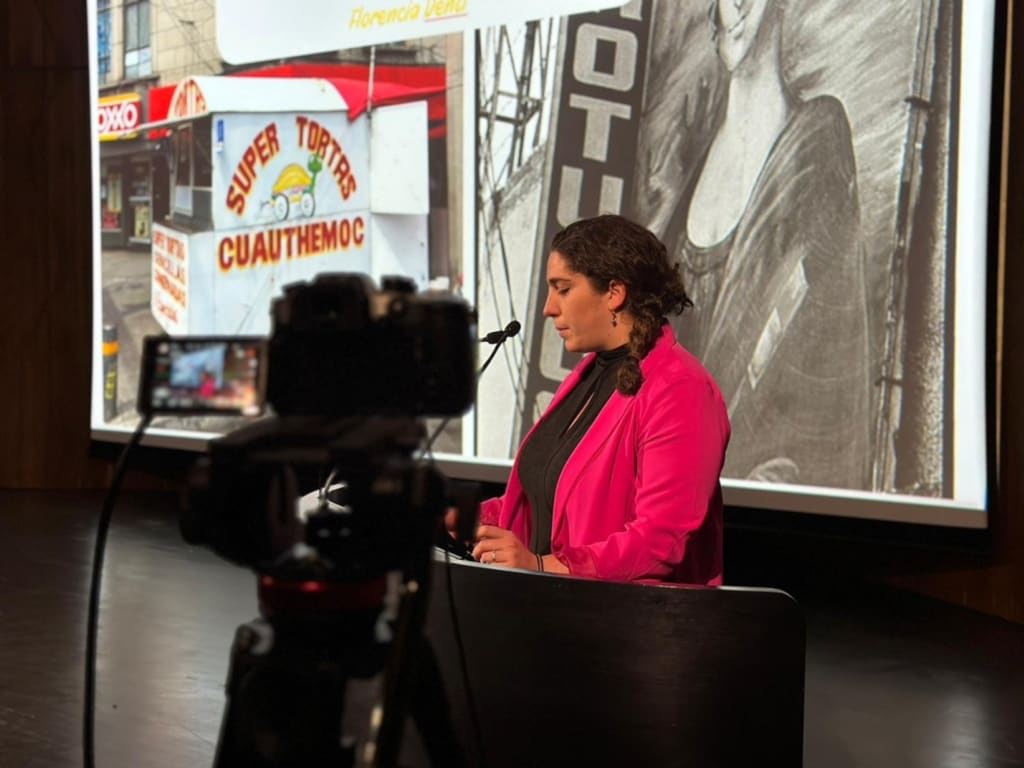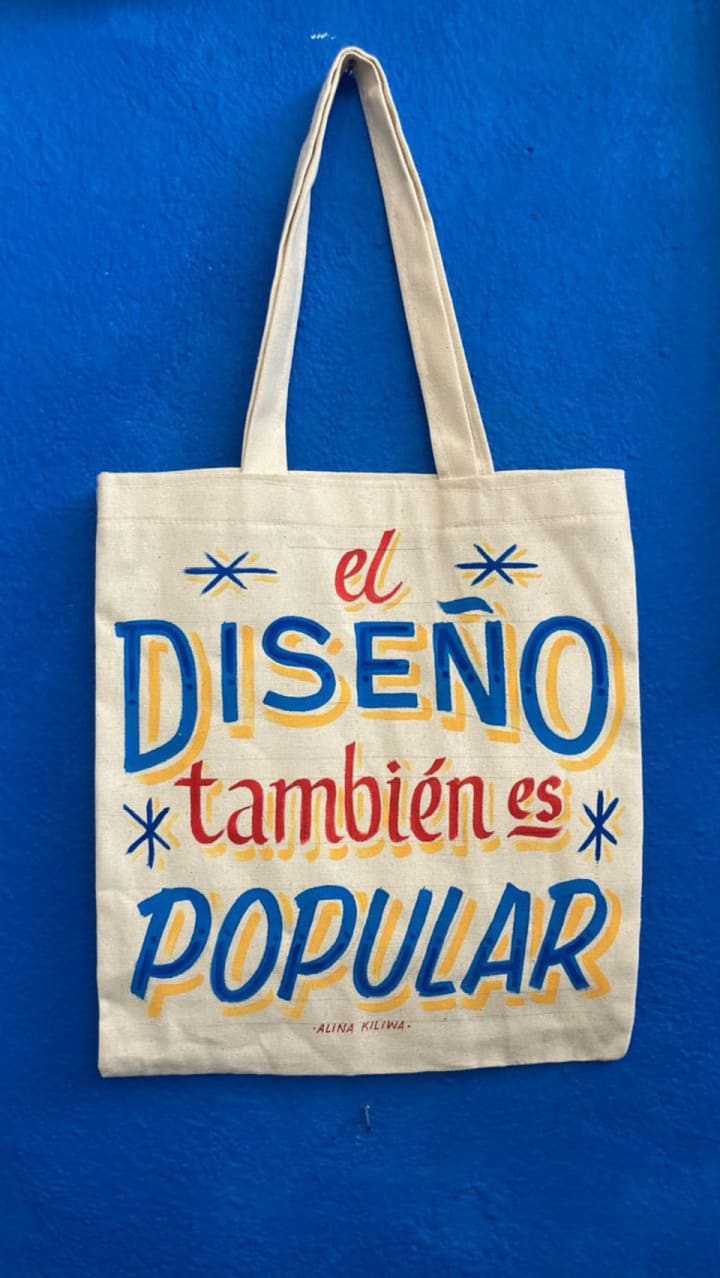Florencia Denti was born and raised in Mexico City. She studied a BA in Industrial Design at the Universidad Nacional Autonoma de Mexico which enabled her to work on a wide range of projects related to art, technology and design, including the development of a project for the Mexican General Archive (AGN) creating new technology experiences to bring audiences closer to museums, designing bamboo bicycles and working together with an artist developing electronic textiles.
Florencia is interested in photography, particularly analogue processes, and studied at the Escuela Activa de Fotografia in Mexico City. She still practises it as a hobby today. In 2013 she moved to London where she had the opportunity to explore multiple fields; inspired by the city's cultural diversity, she decided to deepen her knowledge of material culture and photography and joined the V&A/RCA MA History of Design. In her work she explores topics such as feminism, social and cultural changes in crafts and analogue processes, and the importance of inclusivity in arts and design.
Florencia had the opportunity of doing a 6-month placement at the V&A Museum where she contributed as a researcher for multiple projects including the OSPAAAL Solidarity and Design (Organization of Solidarity with the People of Asia, Africa and Latin America) exhibition and published an article, 'Che Guevara in OSPAAAL Posters', on the V&A's website. This opportunity has motivated her to pursue further opportunities in research and curatorial fields. In 2022 Florencia also joined the UK Mexican Arts Society as a trustee and hopes that she has opportunities to work further with other Mexican and Latin American artists.

